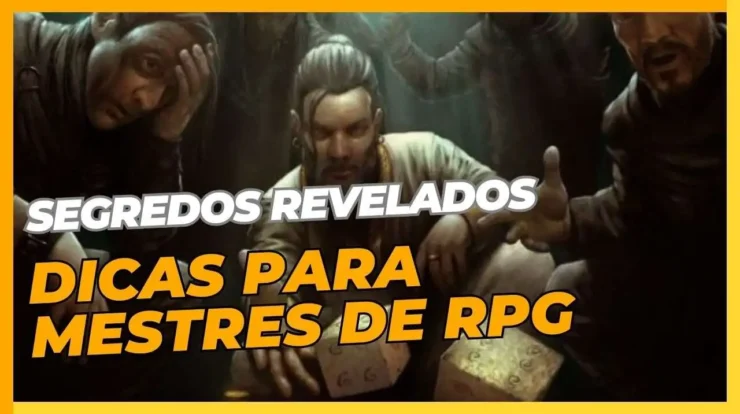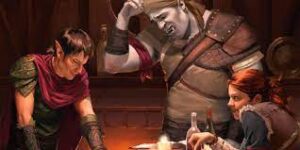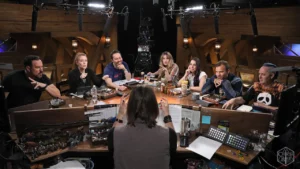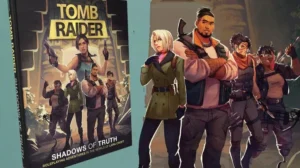
D&D Masters: Secret Tips Revealed!
If you want to make your campaign Dungeons and Dragons unforgettable, you are in the right place.
Together, we will delve into the well-kept secrets of the world’s most renowned masters. tabletop rpg. Secrets revealed for D&D masters and other Tabletop RPG styles!
The art of narrative

Storytelling is at the heart of any RPG session. So how can you really shine in this area? Let’s explore!
Firstly, value the details: It goes beyond simply mentioning a forest.
Make your players feel the damp ground beneath their feet, hear the birds chirping and the leaves rustle. Engage them with rich, detailed descriptions.
Right away, introduce exciting conflicts: A good story always has challenges.
Surprise your players with moral dilemmas, unexpected betrayals and exciting twists. Keep them on the edge of their seats!
Furthermore, customize the journey: Get to know your player characters. Integrate your personal stories into the main plot. Make them feel like they are central to the narrative.
Narrative Styles in Tabletop RPGs
Upon entering the fascinating universe of mastering, we soon realize that the narrative is one of the pillars of a good session.
However, there are multiple narrative styles a GM can adopt. Each style offers a unique experience for both the DM and players.
So, how do you choose the best one for your table? Let’s explore!
Guided Narration vs. Free Narration
In a guided narrationthe master has greater control over the plot.
It clearly establishes the path to be followed, ensuring that the story proceeds in a specific direction.
However, this does not mean that players are mere spectators; they still have the freedom to act, but within a predefined framework.
On the other hand, the narration Free offers more freedom to players. The story is fluid and changes based on the group’s actions and decisions.
In this style, the DM acts more like a facilitator, adapting and reacting to the natural flow of the campaign.
Types of Narrators

When we talk about types of narrators, we have the omniscient narratorwho knows everything about the world and the characters, and often offers insights into the characters’ thoughts and feelings.
In contrast, we have the limited narratorwhich tells the story from the perspective of a specific character, maintaining mystery and surprise.
Narrative Genres
The beauty of RPG lies in the diversity of genres that can be explored.
Be it an epic plot of fantasia full of dragons and magic, a thriller noir in the dark streets of a city, or a horror Gothic in an abandoned castle, each genre offers unique nuances and narrative challenges.
Fantasia: Magical worlds, dragons, elves and epic adventures. Example: “Dungeons & Dragons”.
Sci-fi: Distant futures, spaceships, aliens and advanced technology. Example: “Starfinder”.
Horror: Monsters, suspense, mysteries and terrifying atmosphere. Example: “Call of Cthulhu”.
Post-apocalyptic: Devastated worlds, survival and rebuilding societies. Example: “Fallout RPG”.
Steampunk: A mix of steam technology and Victorian aesthetics. Example: “Iron Kingdoms”.
Crime/Black: Detectives, mysteries, crimes and dark urban environments. Example: “Blades in the Dark”.
Historic: Based on real eras of human history, from antiquity to more recent periods. Example: “Pendragon”.
Modern/Urban: Adventures in contemporary settings, which may or may not include supernatural elements. Example: “Vampire: The Masquerade”.
Cyberpunk: Dystopian futures with high technology and low quality of life. Example: “Shadowrun”.
Western: The old west, gunslingers, sunset duels and the wild frontier. Example: “Deadlands”.
Understanding these genres and applying their characteristics can greatly enrich your session.
Interpretation techniques
Roleplaying brings your world and its NPCs to life. Here, we reveal how to perfect this skill.
Firstly, Voice NPCs: Create characters with rich stories, strong accents and unique personalities. Don’t allow them to be forgotten.
Right away, promote constant stimuli: Challenge hesitant players with situations that take them out of their comfort zone. This will encourage them to get more involved.
Furthermore, show tangible reactions: The world must reflect the actions of the players. Show them the consequences of their choices, good or bad.
Advice for Beginning D&D DMs

If you’re a novice master, pay attention to these secrets to conducting memorable sessions!
First, accept the errors: We all learn from failures. Instead of getting frustrated, use them as springboards for growth.
Furthermore, listen to your players: They will provide valuable feedback. Adapt based on your insights to constantly improve.
Finally, keep studying: The RPG universe is vast and always evolving. So stay updated and keep learning.
D&D Masters: Secret Tips Revealed!
DMing goes beyond leading a game; it’s about creating worlds, challenging minds and generating emotions. So invest in your storytelling skills, listen to your players, and never stop learning.
In short, speaking of continuous learning, be sure to listen to the podcast episode of tabletop rpg “Quantum Box” about “high magic x low magic”.
Jogada de Mestre is a podcast where two professional masters, JP and Henrique discuss and debate Tabletop RPGs in general and their improvement. Don’t miss it!

It will be an incredible journey after all, Tabletop RPG is incredibly fun!
Podcast: Play in new window | Download (Duration: 54:36 — 100.0MB) | Embed
Subscribe: Email | | More
Source: https://www.caixinhaquantica.com.br/mestres-de-dnd-as-dicas-secretas-reveladas/


